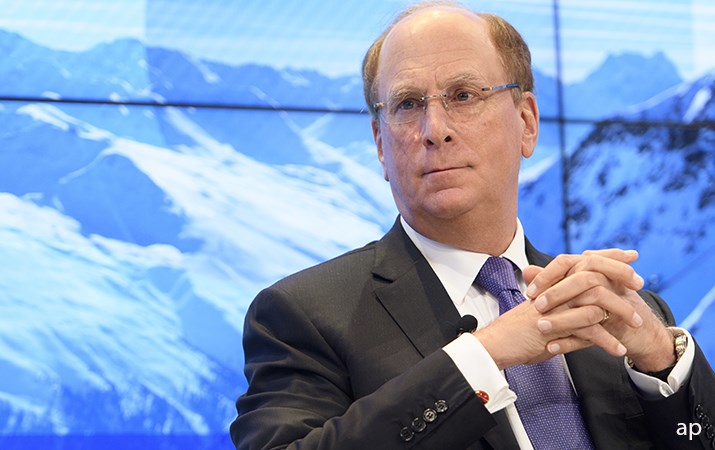
The world’s largest asset manager just became the world’s largest sustainable investor.
In his annual letter to clients, chief executive Larry Fink announced that sustainability is BlackRock’s “new standard” for investing. This means setting an expectation that companies assess their climate and other sustainability-related risks and report to shareholders using guidelines set by the Task Force on Climate-related Financial Disclosure (TCFD) and the Sustainable Accounting Standards Board.
Second, it means integrating sustainability into all of the firm’s investment strategies, with an eye toward reducing ESG risk in actively managed strategies. BlackRock expects to exit its exposure to thermal coal producers this year and intends to report to clients on the sustainability risks in all its portfolios, using carbon footprint and other measurements.
Third, BlackRock intends to expand its offerings of sustainability focused strategies. It intends to double its offerings of passive ESG-focused ETFs, create fossil-fuel-free portfolios and add active strategies focused on the global energy transition and impact investing. It also intends to expand its asset-allocation strategies to ESG and create a much-needed ESG target-date series.
Finally, BlackRock intends to further enhance its shareholder stewardship activities. Last week, the firm joined the Climate Action 100+, a group of investors that engages with the world’s most significant carbon emitters. It also served notice that it intends to vote more often against managements that are slow to disclose climate and other sustainability-related risks to shareholders. (Morningstar research has shown that BlackRock tends to vote with management against shareholder-sponsored resolutions about climate and sustainability issues.) And it intends to be more transparent about its voting and engagement practices, moving to quarterly voting disclosure, publishing its rationale for key votes, and providing more information about engagements with companies.
What to make of all this? BlackRock has faced criticism for not taking the lead among major global investors in fighting the climate crisis. It has now signalled its clear intent to do so and, more generally, to be the world’s foremost sustainable investor. Time will tell, of course, but few asset managers have been willing to be so bold in signalling their intent to embrace sustainability.
A Sense of Purpose
Larry Fink’s annual letters to corporate CEOs over the past several years have been bellwethers of a shift in thinking about the purpose of the corporation and of investing. Fink first started down this path in 2018, when he titled his letter “A Sense of Purpose,” arguing that successful companies exist to benefit all their stakeholders and make a positive contribution to society. Last year, he reiterated that idea, noting that companies face rising expectations from all their stakeholders for demonstrating positive purpose and public leadership.
This view – call it stakeholder capitalism – runs counter to the notion of shareholder primacy, the idea that the purpose of a public company is nothing more than maximizing shareholder value. That notion is on the wane, reflected in the growing sense that global capitalism just isn’t working well enough for most people. And over the long run, that means it won’t work for shareholders, either.
Sustainable investing strategies vary, but most of them are trying to identify companies that are pursuing stakeholder value, avoid those that aren’t, and engage with the ones they own to urge them in the right direction. Over the long run, corporations are more likely to adopt a stakeholder-value approach if they know they have a base of support for it among their investors.





















